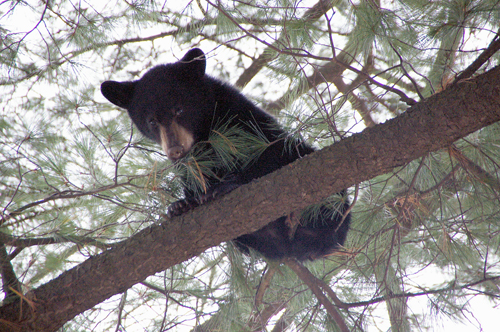Towns, villages, don’t opt out of cannabis sales
With regard to the legalization of recreational marijuana, we’re not sure what the town of North Elba and village of Lake Placid board members will decide as far as opting out of allowing retail dispensaries and/or on-site consumption establishments from locating and operating within their municipal boundaries. But we haven’t swayed from our opinion published in April that opting out of marijuana sales would be a wasted opportunity.
Board members can still ban on-site consumption establishments — we have no problem with that — but please take the money that would be generated from sales tax if it’s offered. There will be a 13% tax on sales of cannabis products — giving a 3% cut to municipalities and 1% to counties. That money will be useful when times are tough — and when it comes to funding local government, times are always tough.
For those who may think it’s dirty money, it’s not. It’s legal, says the state of New York as of March 31.
Former Gov. Andrew Cuomo signed the Marijuana Regulation and Taxation Act on that date, making it legal for people 21 years of age and older to possess up to 3 ounces of cannabis and 24 grams of concentrated cannabis (such as an edible or vaporization oil). Dispensaries have not yet been established in the state.
And even though you can’t grow it at home yet, that’s coming, too. When the newly formed Office of Cannabis Management sets the guidelines, New Yorkers 21 and older will be able to cultivate marijuana plants at home for personal use — up to six plants per person (three mature and three immature) and a maximum of 12 plants per household (six mature and six immature).
The smoking or vaporization of cannabis is prohibited anywhere that smoking of tobacco is prohibited. On the flip side, that means you can light up a marijuana cigarette anywhere tobacco products can be lit up.
We applaud the North Elba and Lake Placid boards for holding an information and opinion-gathering session in public, as they did virtually on Sept. 29.
Likewise, we commend the town of Keene for holding a similar public meeting on the marijuana law on Sept. 9. The town even conducted a poll, with 191 responses from two questions.
1. Are you in favor of allowing an adult use cannabis retail dispensary to open in the town of Keene? Results: 68% yes, 32% no.
2. Are you in favor of allowing an on-site consumption licensed business to open in the town of Keene? Results: 55.5% no, 44.5% yes.
It’s important to hear what our town and village residents are thinking.
But don’t overthink it. Not taking sales tax from marijuana is like not taking sales tax from alcoholic beverages. Both were illegal at one point in our state’s history, but both are currently legal. It’s time to accept it and move on.
There are currently 18 states that have legalized recreational marijuana; New York was the 15th. The first was Washington state on Dec. 6, 2012, followed by Colorado four days later. Other states followed: Alaska, Oregon, California, Massachusetts, Nevada, Maine, Vermont, Michigan, Illinois, Arizona, Montana, New Jersey and New York. It became legal in New Mexico on June 29 and in Connecticut and Virginia on July 1. That doesn’t include Washington, D.C. and the U.S. territories of Northern Mariana Islands and Guam.
In January 2014, Colorado became the first state to sell recreational marijuana products, with total sales to date of $10,333,435,545 as of the end of February, according to the Colorado Department of Revenue. The sales in 2020 were $2,191,091,679. The total tax revenue collected in Colorado since 2014 was $1,698,853,703, as of the end of March.
Let’s look at the decision facing town and village officials. To opt-in, they do nothing. To opt-out, they pass a local law saying so by Dec. 31.
In the long run, the younger generations would most likely reverse any opt-out laws we pass now anyway, so it doesn’t make any sense to opt out. Recreational marijuana use is the new normal.



